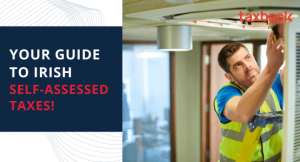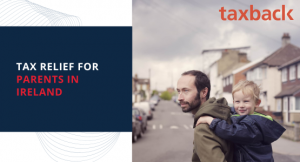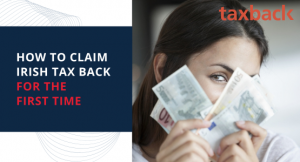Understanding self-assessed tax in Ireland: A complete guide
If you're self-employed or have income outside of the PAYE system, you may need to file a self-assessed tax return in Ireland.
Self-assessment tax filing might seem daunting at first, but with the right information, and maybe even a little outside help - it's a process that can be managed quite easily!
This guide will walk you through the essentials, from determining if you need to file, to gathering documents, and getting to know the filing deadlines and associated requirements.
Who needs to file a self-assessed tax return in Ireland?
Not everyone in Ireland is required to file a self-assessed tax return, but if you fall into any of the following categories, it's time to get familiar with the process:
-
Self-employed individuals: If you're running your own business, you're responsible for reporting your income and paying the necessary taxes.
-
Rental income earners: Do you own property and receive rental income? You’ll need to declare this to Revenue.
-
Foreign income recipients: Income from investments or pensions abroad also requires self-assessment.
The key takeaway? If your income isn’t taxed at source, you likely need to self-assess!
What do I need to file a self-assessed tax return?
Before you dive into filing your return, preparation is key. Gather all the documents you'll need to make the process as smooth as possible:
Income records: From your business or other income sources like rental properties or investments.
Receipts and invoices: For expenses you plan to claim, such as business costs, medical expenses, or pension contributions.
Details of any preliminary tax paid previously: This is crucial as it impacts your final tax bill.
By keeping hold of any relevant documents and receipts throughout the year, you will save yourself the headache of trying to find all the necessary paperwork when the deadline approaches!
The average Irish tax refund is €1,880
How to file an Irish self-assessed tax return
There are two main ways in which you can file your Irish self-assessed tax return.
Filing by yourself
You can file your tax return by yourself directly with Revenue. You’ll need to have knowledge of relevant tax documents, like Form 11: This is the main tax return form for self-assessed individuals.You’ll need to review and update the details when filing.
Pay any tax due: Once you've determined what you owe, you’ll need to pay it.
Filing with Taxback
Using a tax agent like Taxback takes all of the hassle away from managing your tax return.
Not only will we complete all of the forms on your behalf, ensuring you are 100% compliant with Revenue, but we’ll claim all relevant reliefs and expenses to minimise your tax bill.
We'll also make sure to file your return by the 31 October deadline to avoid penalties.
And there you have it - your return is filed!
Irish tax deductions and reliefs you can claim
As a self-assess filer, you can still claim deductions and tax reliefs, much like PAYE workers can.
Some common ones include:
-
Medical expenses: If you paid for healthcare costs not covered by insurance, you could claim these back at the rate of 20%.
-
Pension contributions: Contributions to a pension plan are often tax-deductible.
-
Work-from-home relief: Did you pay bills associated with working from home (internet/electricity/heating)? You might be eligible for tax refund.
-
Rent-a-room relief: If you're renting out a room in your home, you could benefit from this relief.
These deductions can significantly reduce your tax bill, so make sure you’re not missing out.
The average Irish tax refund is €1,880
Important tax deadlines and penalties for late filing
When it comes to tax and tax rebate, deadlines matter.
The self-assessment tax filing deadline in Ireland is 31 October—this is when your tax return and any payments required are due.
If you file online, you will get an extension to mid-November.
Miss the deadline? The penalties can be steep:
-
5% surcharge if you file within two months of the deadline.
-
10% surcharge if you file later than that.
Additionally, interest charges can apply to late payments, so it’s crucial to file before the deadline.
FAQ: Common Questions Answered
How do I file a self-assessment tax return in Ireland?
Simply, fill out Form 11, calculate your tax, and submit your return. It’s all done online.
What are the key steps for self-assessment tax?
Gather your documents, complete Form 11, assess your tax liability, and make the necessary payments.
What is the 4-year rule for Revenue?
You have up to four years to claim tax refunds or amend previous returns. After that, you're out of luck!
What does self-assessment mean?
Self-assessment means you're responsible for calculating and reporting your own tax liabilities, rather than having tax deducted automatically from your income.
The average Irish tax refund is €1,880
Ready to file?
Filing your self-assessed tax return may feel a little overwhelming, but by breaking it down into manageable steps, you can manage it with ease!
And remember, by filing with Taxback, you can forget about taxes for another year and let the experts manage your return correctly.
Check out our self-assessment service today!





